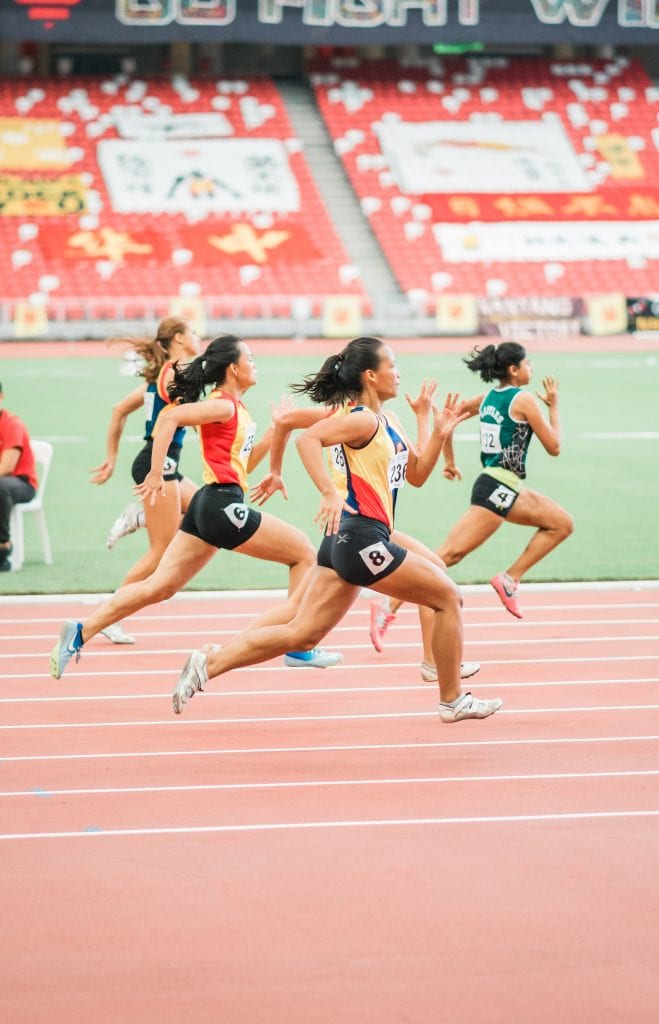
Do you recall the first time your parents taught you to catch a ball, or how to swim? As a child, you may have ran around in void decks with your friends – sweating profusely yet having fun. These are all moments associated with sports that have become some of our most treasured childhood memories. These moments may have taught us many things – certainly, sports is an invaluable tool to teach us some of the most important values in our lives. Despite the importance of sports in our lives, sports remains one of the most undervalued causes in Singapore. In truth, sports has a wide range of benefits in store for all of us, not only in terms of enhancing our physical strength, but also in helping us rally through some of our toughest moments, indiscriminately of who we are and what our backgrounds may be.
How Sports Helps All
Youths
Physical activity has an immensely positive impact on not only our children’s physical health and development but on their psychological health as well. Team sports, more specifically, can have an even greater impact in these areas of growth while improving social skills in the process. Sport provides children with the perfect outlet to keep them active while having fun and learning valuable life skills, while instilling in them values of patience, perseverance, and discipline.
For instance Fhairul, a Special Olympics athlete and his teammate Xian Li, shared a heartwarming story of how they forged an unlikely friendship through sport and how it taught both of them crucial mindsets and soft skills that helped them understand not only each other better, but also themselves.
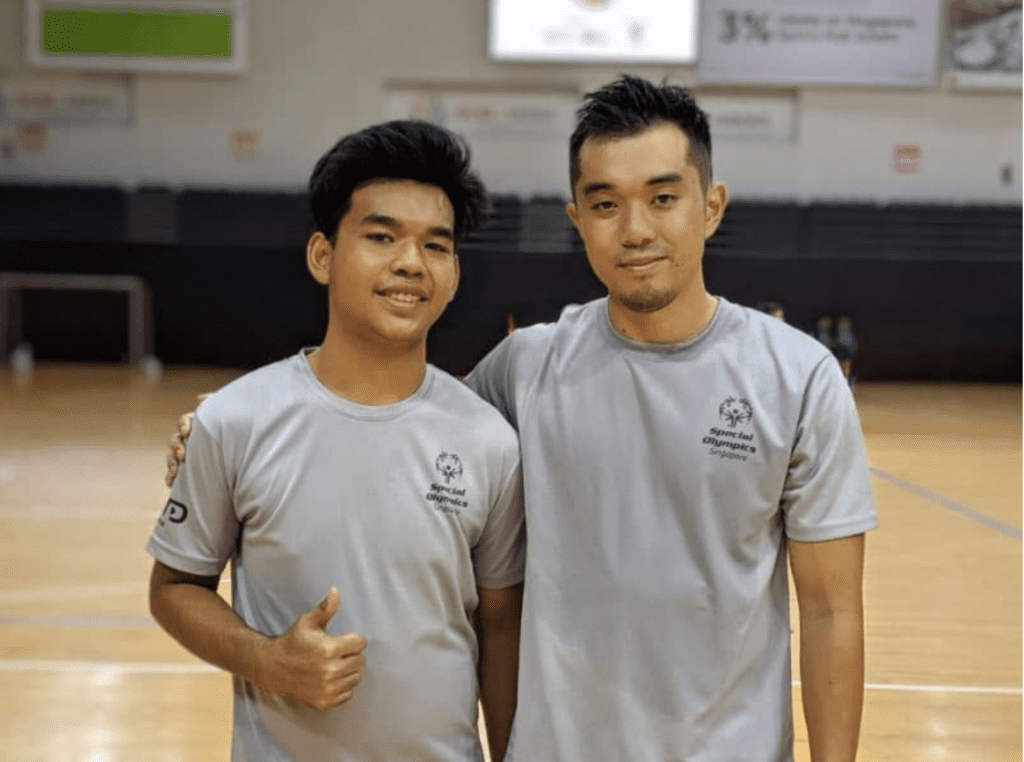
Besides physical benefits, mental benefits of engaging in sport are equally as impressive. When we are physically active our body releases serotonin which directly contributes to our feelings of well-being. Exercise has also been found to relieve stress, depression and anxiety. Although often overlooked, children experience these emotions just as adults do and exercise is a great way to help combat these feelings. Sport increases the likelihood of children staying active, allowing them to sleep better and keeps them mentally sharp. Recent studies have found that increased physical activity levels directly relate to school performance, particularly in the areas of math, reading and retention of information.
Read Lionel Choong’s story, who is head of CrossFit Kids & Teens at Innervate Fitness, which aims to impact young lives as the lead organising body of Operation Broken Wing, a charity fitness event that brings together the entire fitness community in Singapore, with the aim of using fitness for good and raising money for youth-at-risk through workout sessions.
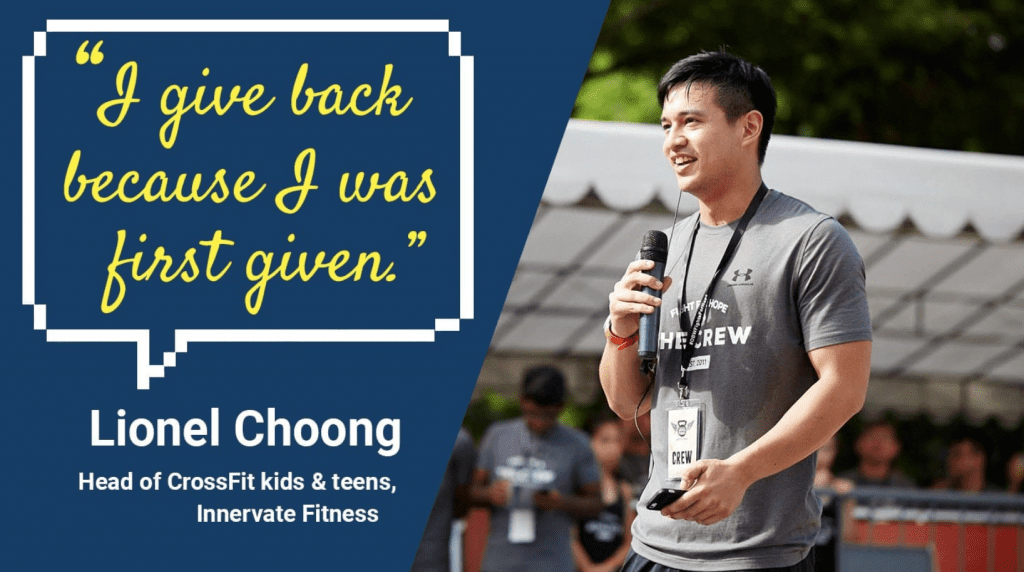
Despite their difficult backgrounds, Choong says that sports have a provided way for youths-at-risk to believe in themselves, opening their eyes to see that they are not defined simply by grades, looks or stature; because in sports– everyone is equal.
Adults
The necessity of staying physically active as one ages is often repeated to adults, yet the truth in this matter cannot be overstated. Sports not only keeps one’s body healthy and functioning optimally, but recent studies have found that physical activity can even help prevent cognitive decline later in life. Team sports, specifically, keep adults motivated and committed to exercising through a group of individuals who keep each other accountable, and in doing so, encourage each other to lead healthier lives.
As adults, time always appears scarce; there are almost always a million things to do, such as handle work tasks, manage social and family commitment – it all boils down to a tricky and exhausting balancing act. Engaging in sports can not only help adults manage their stress, but also regulate their mindsets by taking the time to rest mentally and release negative emotions to perform better in their daily lives.
Recognising the importance of sport in adult’s lives, the Fit2Give initiative was started by the True Group to do their part in giving and showing appreciation to individuals working in Singapore’s charity sector through helping them with their health and fitness. Sean, Director of True Group expresses, “Being the pioneer partner in this Fit2Give initiative gives us an opportunity to reach out to the good people who are giving on a daily basis, and to help remind them of their own health and fitness so they will be in the pink of health to help others.” As adults, while we hustle all day and strive to give our all to our jobs, our families, our friends, it is important to preserve our physical bodies that enable us to love ourselves — and in so doing our loved ones — the way they deserve to be loved.
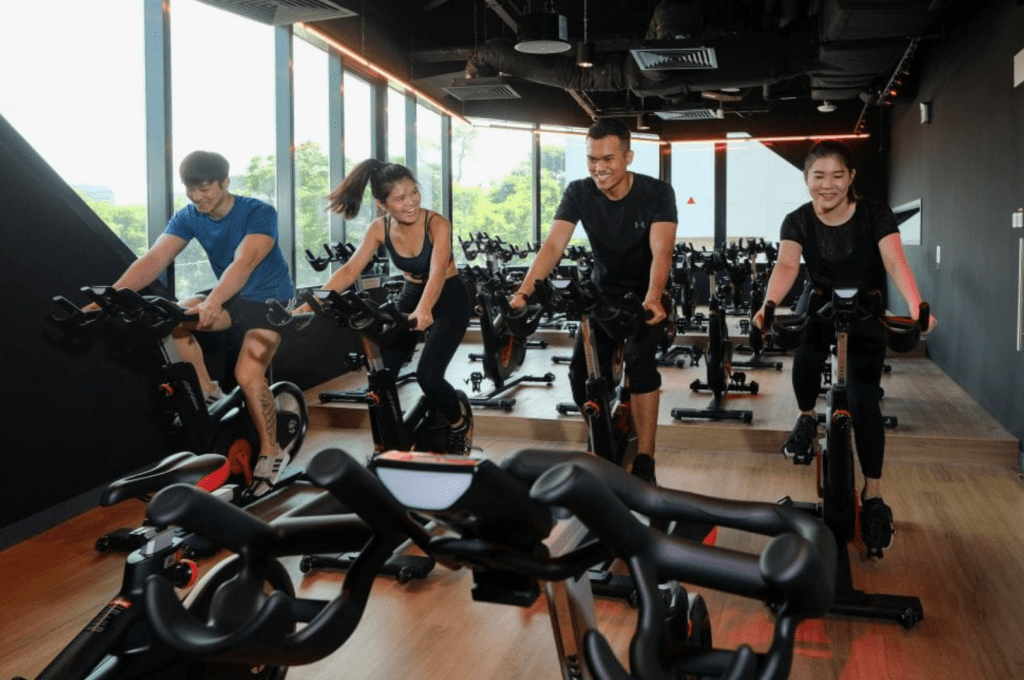
The Elderly
Even the elderly, whom we ordinarily do not think are as involved in sports as the younger generations, have plenty of benefits to gain from engaging in sporting activities. These benefits include a reduced risk of contracting conditions like heart disease, strokes and even some forms of cancer. Stronger muscles, joints and bones also help to increase mobility and independence of the elderly.
The elderly are also more prone to suffering from depression and loneliness, and sports is an extremely effective way of countering these mental health issues. Apart from the fact that exercise releases endorphins, this is also because when the elderly take part in sporting activities, they are a demographic much more likely to do so in a group. Whether they join a walking group, go to group fitness classes or visit a gardening club, exercise can be made into a fun social event for the elderly. Maintaining strong social ties plays a key role in helping aging adults retain a sense of purpose and avoid feelings of listlessness. Moreover, group exercises inflate a sense of community among elders who often live alone or feel as if they are no longer given a lot of time and attention among their families.
Read about senior residents in the Chong Pang estate who are empowered to organise and lead activities that interest them, including a Theraband exercise led by senior residents who volunteer to do so regularly. Such active activities or routines have been found to have greatly improved the overall emotional well-being of seniors.
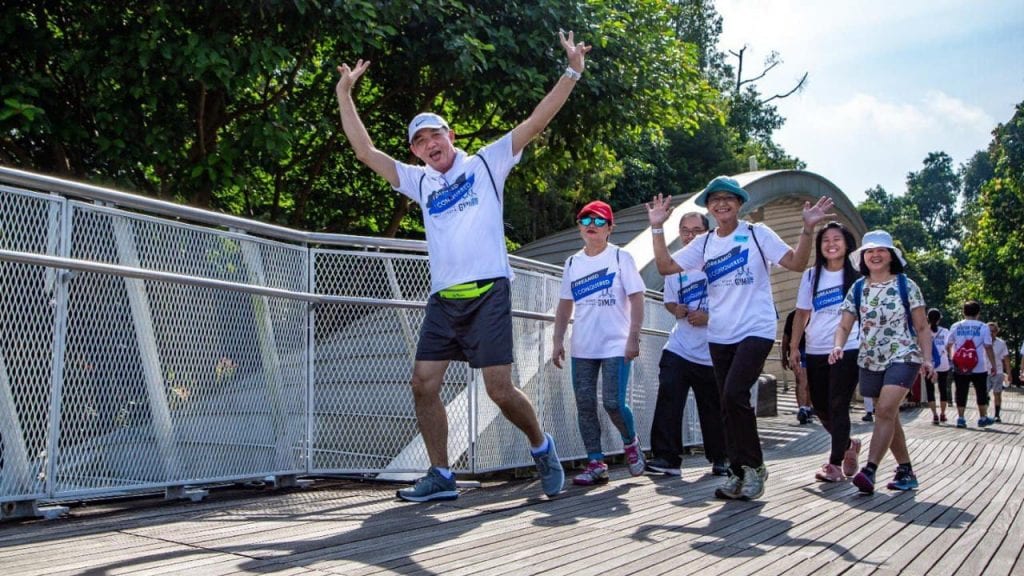
Sports: An Undervalued Cause
Despite these benefits of sports, many people report being more likely to give to other causes instead. This is due to reasons such as lack of media attention given to stories of people who have had their lives deeply impacted by sports, since a lack of personal touch makes the cause as a whole seem less worthy of giving towards.
When we think deeply about all the benefits which sports brings to our lives, we know that our great memories with sports aren’t about whether we won or lost. Sports, being about more than just physical exercise and winning trophies, encompasses core values like grit, confidence and determination.
Indeed, when we appreciate the importance of sports, all of us win.
Find out how you can give back to sports: www.giving.sg/sports.




















